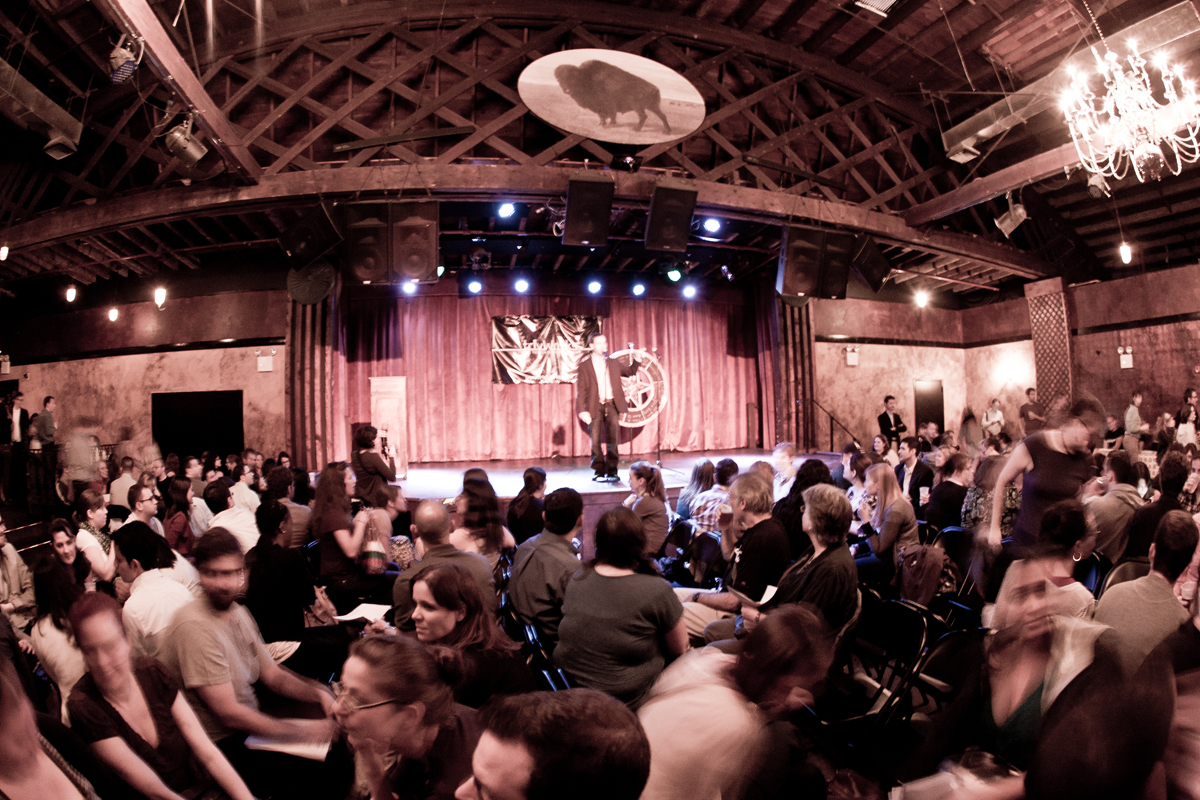Meeting Entertainment: Tried & True, or Something New?
 Meeting entertainment NYC
Meeting entertainment NYC
It’s a conversation I have practically every day. An event planner like yourself – either professional or amateur –has been given the task of coming up with a fun meeting break idea in NYC or elsewhere. Whether it’s for a conference, convention or retreat, corporate entertainment in New York City runs a wide gamut, and the options can be overwhelming; as such, should the planner recommend an activity which the group has done in the past, or suggest they try something new?
Very often, it isn’t the planner who calls me who has final say on what kind of amusement will be provided at the meeting, but rather a senior decision maker. This decider will likely compare several options, taking into consideration not only the type of activity, but the appropriateness for the audience who will be participating, level of energy/engagement required, commitment of time, and of course cost. However, floating around in the back of their heads will also be something else: should we try something new, or just do what we know works?
Seeing how I own the only employee team building company in the Big Apple specializing exclusively in trivia events for corporate groups, it’s understandable that people inquiring about my services may sometimes have a bit of hesitation in their voices. After all, trivia is unique – if you’re like most planners (or participants) of these types of activities, you’re probably accustomed to something more traditional: scavenger hunts, cooking classes, ropes courses, even (shudder) trust falls. For conservative companies looking for a fun group bonding activity, it makes sense therefore that they would want to go with something familiar, something proven, rather than take a chance on something completely novel.
Even though I clearly have an interest at stake, I always want what’s best for each specific group, as well as their goals. While I know that my trivia events are incredibly versatile, highly customizable and extremely accessible for virtually every audience, they’re still not for everyone – or for every meeting. If the group in attendance is old school (or even just old), they may not want to dally with some newfangled thing, but rather just did what they did the last time (or the last 10 times). When I was a volunteer firefighter back in my teens and early 20s, they guys around the firehouse had a saying: “if it ain’t broke, don’t fix it.” I agree.
However, what if the planner truly believes that the group will enjoy – even benefit from – trying something different? I never have to sell the person on the phone about trying new experiences, since it was they who called ME – however, it’s convincing that decision maker down the line which can be a challenge, and ultimately may leave the planner feeling frustrated. Here’s what I might suggest the planner try, if they feel that a new activity might be worth pursuing:
- Explain in clear, practical terms why it would be a good idea try something new
- Poll the audience of expected attendees before approaching the decision maker – if they are on board, it will help make the case to go for the fresh activity, rather than the stale one
- Show them demonstrable evidence that the new activity is worth doing. The decision maker is likely fearful that this new “thing,” whatever it is, will be lame, poorly run, and potentially embarrassing/reflect poorly on him or her. Provide things like the new vendor’s client list, testimonials, media coverage and other forms of social proof, to let the decider know that this is legit
The “something old or new” debate isn’t limited to just different activities. Even if the group has decided to stick with what they’ve done in the past, they may have to choose between doing it the same way as before, or trying it with a new twist. In the case of TrivWorks, I have many long-term repeat clients who want the same experience (with new trivia questions) each and every time. However, some clients want something different, which is why we offer a diversity of experiences including trivia night “Special Hosts” and in-office trivia mixoloxy option. Should we try one of these new things, or stick to what we know?
It always comes back to the same thing: what is the goal for the event? What kind of experience are they expecting/do you want for them? Will a new kind of offering enhance or detract from those goals? These are the REAL questions to ask yourself (or the decision maker) when determining whether to go with an established or novel form of entertainment for your meeting.